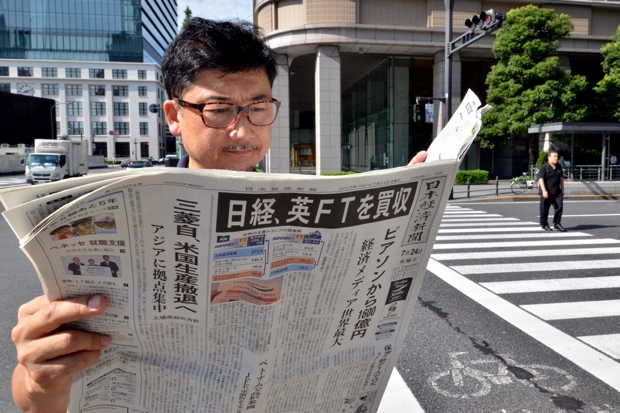It’s nearly 30 years since I worked in Japan, but I still have a few words of the language and a certain idea of how the place works. The role of the business press, for example, was to trumpet export successes of Japanese corporations, and not to report shenanigans in which securities firms boosted prices of selected shares by pushing them to housewife investors, to generate campaign funds for favoured politicians.
So I’m curious how the Financial Times will fare under its new owner Nikkei, the very Japanese media group that has paid £844 million to acquire the world’s most prestigious business title. Has the culture changed since my day? I asked an old friend last seen in a karaoke bar behind Shimbashi station: ‘There’s not much evidence of objective inquiry: the mainstream press are a pretty docile bunch, and Nikkei is very much part of the system. They were critical of Olympus [the scandal-hit electronics group] but only because the story was reported abroad and the company was marked for a fall; likewise Toshiba recently. They sometimes take an adversarial attitude to government… but I’d say the editorial board can always be relied upon to place national interest ahead of the public’s right to know.’
Rather confirming that impression, a Japanese minister said the FT deal ‘will make it possible to transmit information on Japan’s economic situation to the rest of the world more accurately’. Meanwhile, Nikkei chairman Tsuneo Kita says, ‘We share the same journalistic values.’ To which the optimistic answer must be: up to a point, Lord Akagane (that’s Japanese for copper).
This is an extract from this week’s issue of The Spectator, available from Thursday. Subscribe here.







Comments